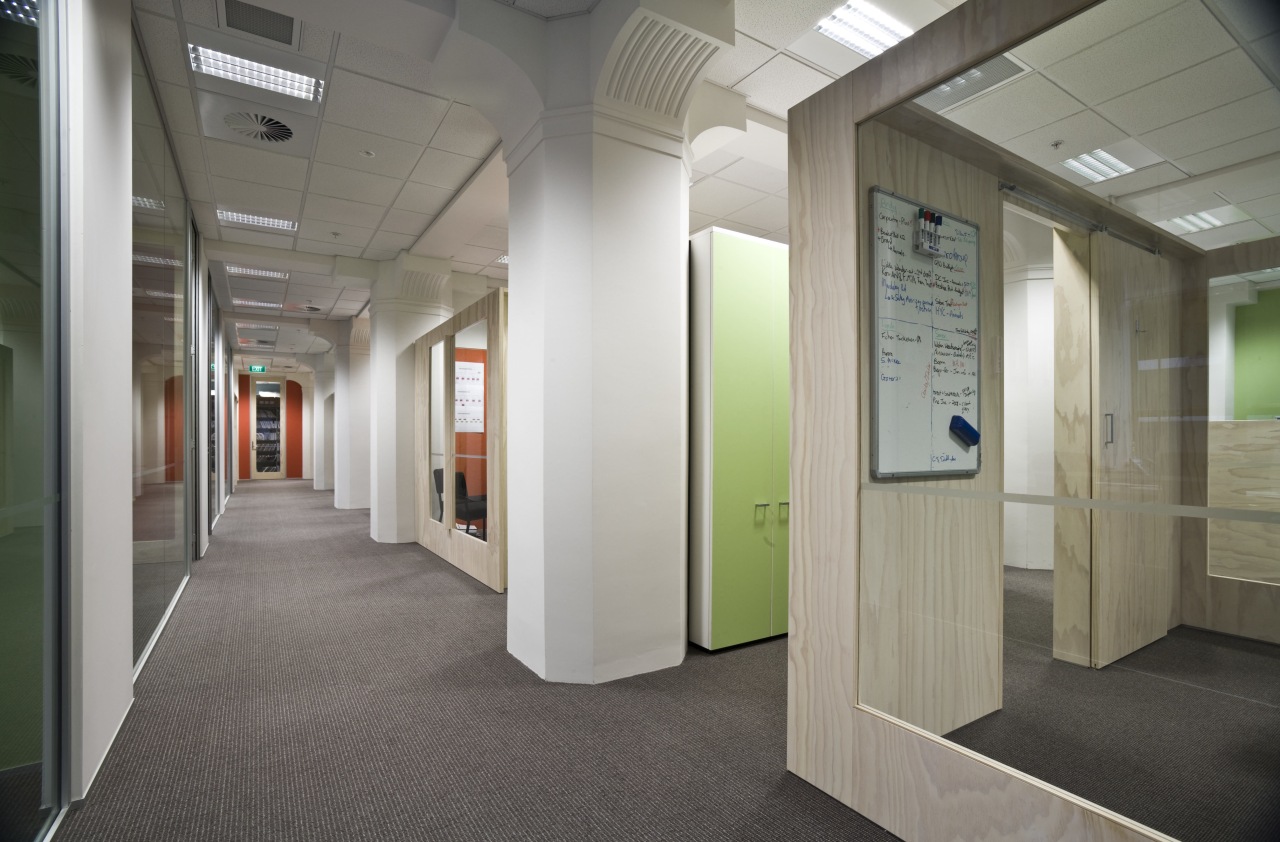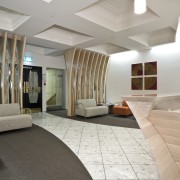Elements of deco
References to the original Art Deco features of this now-renovated 1930s tower building are found in the refurbishment of these new offices

Repeating one or two significant architectural elements can be a very simple way to establish or emphasise a connection between different spaces when designing an office.
Project architect Marian Salmon of Seddon Associates used this technique when she fitted out new offices for BDO Spicers (Wellington), a chartered accountancy firm. The eight-storey tower where the offices are now located was built in the 1930s in an Art Deco style. Although the office levels were gutted ready for refurbishment, the building's Art Deco features were retained, including the ground-floor lobby, the staircase through the centre of the building, and the ceilings of the entry foyer and lift lobby.
"Our client's offices are located on the first floor of the building, close to the original Art Deco staircase leading up from street level, so we decided to reinforce this proximity by taking the Art Deco theme into the reception area," says the project architect.
"We felt that by keeping a few key architectural elements, the BDO Spicers (Wellington) offices would feel as if they were part of the whole building."
To provide a close link between the first-floor public lobby and the company's own reception area, the architect specified fire-rated glass. In addition, the old decorative coffered ceilings that were retained in the public spaces have been reproduced in the reception area, and Art Deco-style pendant lights hang above the reception desk. Carpet and tiles in the public lobby area were also repeated in the company's reception, once again to help reinforce the visual connection.
To provide some privacy for reception seating and for adjacent meeting rooms, a series of screens was made from oak in curved fin shapes and infilled with sheets of glass that have been punctuated by curved timber reeds.
Because the screens have a glass element, they allow light from the exterior windows to penetrate into the central corridor along the length of the offices.
"When the light comes through the glass and is obscured by the curved timber, interesting patterns are created. The curved pieces of timber also help to break up the view into the boardroom without blocking the light," says Salmon. "And the curves subtly refer back to the Deco style of the building."
To keep the offices light, most walls are painted white. Partners' offices along the external wall of the building have full-height glass interior walls to bring light into the rest of the space. A random selection of blue, green and orange walls adds splashes of colour, which are repeated in reception chairs and artwork.
Credit list
Architecture
Electrical cabling
Mechanical consultants
Operable walls in meeting room
Reception and interview room chairs
Reception low seating
Public area pendant lights
Construction
Data cabling
Fire safety engineering consultants
Signage
Audiovisual equipment in boardroom
Reception tiling
Meeting room chairs
Story by: Mary Webb
Home kitchen bathroom commercial design
Light and refined
Sculpted by the wind and sun
Expanded presence















